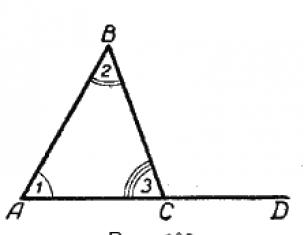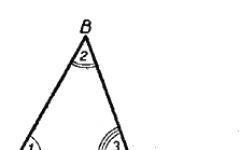As they say, it is impossible to live in society and be free from society. And we are all social people, meeting a lot of other people every day. And we all have to deal with issues of interaction with this mass of other people every day. Moreover, preferably, such an interaction after which you do not feel like a “squeezed lemon.” One of the most common problems in such interaction is someone else’s aggression.
No one is immune from this, so everyone periodically has to wonder how to resist someone else’s aggression? How not to accept it or how to protect yourself from it?
What should be the position inside so that it simply does not occur to people (even the most notorious “boors”) to pick on you and behave aggressively towards you?
Or, to ask the question differently, how are people who rarely experience aggression from strangers different from people who constantly experience it on themselves?
I’m not talking about those moments when you are carelessly touched in a queue or on the subway, when a cashier who is tired from the day allows herself to talk to you in an irritated tone, or a person causes aggression by accidentally stepping on your foot.
I’m talking about those moments when people purposefully, with full awareness and understanding of what they are doing, behave aggressively towards other people, are deliberately “rude”, speak out, push, in general, provoke a person to respond.
Let me make a reservation right away that under no circumstances does aggression appear “just like that” out of the blue; there is always a reason for its appearance. It’s just that often this reason is not visible to the naked eye, and a person himself may not realize that he himself is the provocateur of someone else’s aggression.
In what form can someone else's aggression manifest itself?
- IN open form . Everything is clear here, these are attacks from the outside absolutely strangers, “rudeness” in transport and on the streets, “bulldozer grandmothers” from the Soviet past, a neighbor who is an aggressive drunkard, various kinds of people from a lower social stratum, people who are accustomed to solving their problems in an aggressive way.
- Hidden. Friends and girlfriends often allow themselves aggression “on the basis of friendship.” All this is expressed in impartial statements, advice that was not asked for, in various kinds of “disservices.” And often this is not realized by the person - the aggressor. He is fully confident that he is “helping” his friend. All sorts of comments, statements, criticism, just clinging to a person, seasoned with the sauce “I know better how you should live and what to do,” and aimed at making the person comfortable with such a “friend” and doing what he wants .
This also includes people who consider others to be “cattle” not worth attention. Such people always and everywhere behave like “kings”, they do not take into account the opinions of others, but they do this not in an open form, but by showing everyone with their behavior. They simply have an unreasonably inflated sense of self-importance.
In both cases, a person who has been subjected to someone else’s aggression feels “drenched in slop,” feels guilty for not being able to defend himself, feels humiliated, insulted, “knocked out of the rut.”
Who are these people who constantly fall under the influence of other people's aggression? Or maybe not constantly, but periodically, and this complicates life.
Firstly, These are people who themselves have a lot of aggression inside, but who have prohibitions on its manifestation. A person realizes this aggression through the release of aggression from other people.
Here we can draw an analogy with people who are afraid of dogs. The dog feels this subconscious fear and bites or barks at just such a person. In the case of someone else's aggression, the same thing happens. Energy, internal state a person is such that he “attracts” aggressors into his life. People around them sense and unmistakably identify someone to whom they can be “rude”, based on their body position, voice, facial expressions, appearance, behavior and so on.
Thus life gives feedback. After all, people receive only what is in themselves, but what they are afraid to admit, or what they have internal, very strong prohibitions on.
Let’s say a child grew up in an intelligent family, where it was impossible not only to show dissatisfaction, but also to look “wrong.” AND educational process was aimed at suppressing the individual, all manifestations of dissatisfaction, even to the point of prohibiting being in a bad mood. This is just one example.
Or families with fathers who are alcoholics, when children are afraid of angering their father under pain of physical harm. Imagine a child who grew up in conditions of constant physical abuse and moral humiliation. Such a child, due to his physical weakness in front of an older person, is simply forced to suppress aggression within.
Or a child grew up in a family where all problems were solved with the help of shouting, swearing, and swearing. And even in adulthood such a person experiences panic fear, panic, loss before talking in a raised tone or being rude. Up to various phobias.
Many examples can be given, but such people have one thing in common.
These people are Victims.
The aggressor needs to “drain” aggression, this is obvious, but only on someone who cannot respond. To the Victim, whose own aggression is suppressed. And since, as a rule, the aggressor himself is a Victim inside (also suppressed), he “senses” the same Victim in another person. And even if the Victim starts to “snarl”, then she will do this from the state of the Victim. And this will not lead to any positive result.
Secondly, people who attract aggressors most often suffer from the so-called “Rejection Trauma.” These are people who seem to themselves to be “too big” in this world, they try to take up as little space as possible in it, they are afraid of seeming inconvenient or disturbing someone. They simply psychologically do not allow themselves too much, for example, a high salary, a more convenient and comfortable place of work, a large house or car. Liz Burbo talks about this trauma in her book. Here's an excerpt:
Being rejected is a very deep trauma; the rejected one feels it as a rejection of his very essence, as a denial of his right to exist. Of all five traumas, the feeling of rejection appears first, which means that the cause of such trauma in a person’s life occurs earlier than others.
A suitable example is an unwanted child born “by chance.” A striking case is a child of the wrong gender. There are many other reasons why a parent rejects their child. It often happens that the parent has no intention of rejecting the child, nevertheless the child feels rejected for every, even small reason - after an offensive remark, or when one of the parents experiences anger, impatience, etc. If the wound not healed, it is very easy to unravel. A person who feels rejected is biased. He interprets all events through the filters of his trauma, and the feeling of rejection only worsens.
From the very day when the baby felt rejected, he begins to develop a mask fugitive. This mask manifests itself physically as an elusive physique, that is, a body (or part of the body) that seems to want to disappear. Narrow, compressed, it seems as if it was specially designed so that it would be easier to slip away, take up less space, and not be visible among others.
This body does not want to take up a lot of space, it takes on the image of one running away, slipping away, and throughout its life it strives to occupy as little space as possible. . When you see a person who looks like an ethereal ghost - “skin and bones” - you can high degree certainty to expect that he is suffering from the deep trauma of a rejected being.
A fugitive is a person who doubts his right to exist; it even seems that she has not fully embodied. Therefore, her body gives the impression of being unfinished, incomplete, consisting of fragments poorly adjusted to each other. The left side of the face, for example, may differ noticeably from the right, and this is visible to the naked eye; there is no need to check it with a ruler. When I talk about an “incomplete” body, I mean those areas of the body where whole pieces seem to be missing (buttocks, chest, chin, ankles are much smaller than calves, depressions in the back, chest, abdomen, etc. ),
Not to be present so as not to suffer.
The first reaction of a human being who feels rejected is the desire to run away, to slip away, to disappear. A child who feels rejected and creates a fugitive mask is usually living in an imaginary world. For this reason, he is most often smart, prudent, quiet and does not cause problems.
Alone, he amuses himself with his imaginary world and builds castles in the air. Such children invent many ways to escape from home; one of them is an expressed desire to go to school.
The fugitive prefers not to become attached to material things, because they can prevent him from running away whenever and wherever he wants. It seems as if he really looks down on everything material. He asks himself what he is doing on this planet; it is very difficult for him to believe that he can be happy here.
The fugitive does not believe in his own worth; he does not value himself at all.
The fugitive seeks loneliness, solitude, because he is afraid of the attention of others - he does not know how to behave, it seems to him that his existence is too noticeable. Both in the family and in any group of people, he is suppressed. He believes that he must endure the most unpleasant situations to the end, as if he has no right to fight back; in any case, he sees no options for salvation.The deeper the trauma of the rejected person, the more strongly he attracts to himself the circumstances in which he finds himself rejected or rejects himself.
And when a person with the “rejection trauma” goes out into the street, he often becomes the object of aggression from others. Again, such a person is in a state of Victim, and people simply “mirror” this state to him.
Third, people who suppress reciprocal aggression within themselves, “swallow” someone else’s, do not allow themselves to adequately rebuff the aggressor, and are often victims of targeted, intermittent, sudden aggression. For example, many cannot adequately rebuff their boss’s aggression. What happens next? A person suppresses a reciprocal aggressive impulse, but this impulse requires compensation, so a person can “lash out” at loved ones in order to compensate for the aggression. The one who was “taken away” transmits this aggression further until this impulse reaches the source of aggression (that is, the boss). This always happens.
No one ever forgets where he buried the hatchet. –Kin Hubbard
So, we have decided who, most often, are those people who constantly experience the effects of other people’s aggression. Now the natural question is what to do about it.
How to resist other people's aggression?
1. Understand yourself.
If a Victim “climbs” out of you - so obvious that it attracts aggressors, then you need to understand where this Victim came from. Whether you have “rejection trauma” or its origins in your childhood, you need to understand where exactly you blocked yourself from allowing yourself to respond and work in this direction. You need to understand that a person has the right to defend himself and respond to the aggression of others. But it is still better to free yourself from blockages and traumas, and then people will reflect your new worldview to you. How to do it?
2. Understand that other people's aggression is not your problem.
It's the striker's problem. aggressive person. It is HIM who needs to “drain” aggression, but you just got in his way, and he wants to take advantage of it. And it is advisable to understand this not from the state of the Victim, but from the state of understanding that the “boor” is restless inside and needs to put his spiritual excrement somewhere. And he looks for such a “colostomy bag” in other people. Do you want to be a “colostomy bag”?
Just understanding this already helps to separate you from the state of the Victim, and therefore removes the aggressor’s appetite for such “tasty” energy for him. After all, a person who behaves aggressively does it purposefully in order to receive the energy of attention directed at him. Separating your state from that of the aggressor will allow you not to react too violently, which means you will not allow him to recharge with your emotions.
3. Give a response to the aggressor in an acceptable form.
This point disappears by itself when a person learns to be in a different internal state, the “boa constrictor” state. In the meantime, while studying, the recommendations are as follows.
If a person directs aggression at another, then he is subconsciously ready to receive it in return. Therefore, it is necessary to respond to aggression in any case, everywhere and always. Your self-esteem will thank you later. You need to respond to aggression with adequate aggression, you don’t even feel like eating, even if this is not typical for you, even if you know that you will lose time and energy in this conflict. Adequate rebuff consists of an immediate reaction aimed at showing that aggression has been noticed, and you will continue to fight back if necessary: “Be careful”, “Be careful”, “Talk to me in a polite tone”, “You offended me” , “Stop yelling at me,” and so on. Moreover, this should be said not in a trembling voice, but in a calm, confident tone, looking into the eyes if possible. Show that you don't need conflict, but you can stand up for yourself. There is no need to be “rude” or shout back; you won’t achieve anything by doing this, you will only accept someone else’s rules of the game on someone else’s field. But if a person takes the situation into his own hands, then he controls the situation, and not she controls him. By the way, if you don’t answer anything, it’s the same as accepting someone else’s rules of the game.
At the same time, the goal of retaliatory aggression is not to gain satisfaction and win against the “boor,” but to be cool and put him in his place. That is, the goal is not to win in “rudeness.” The goal is to prevent aggressive people from harming you, and to remain internally calm and aware that you can stand up for yourself. Don’t feel like a colostomy bag later.
All these recommendations are good when aggression directed at you suddenly overtakes you, you are not prepared for it, and you need to react quickly. But you won’t walk around in a state of “combat readiness” all your life, so you need, in principle, to achieve such an internal state when people simply won’t think of attacking you out of the blue.
What needs to be done for this?
1. Learn to assert your boundaries.
Always and everywhere you need to learn to defend your boundaries. By analogy with the state. A normal state will always harshly suppress attempts to violate its borders, both explicit and implicit. Only, unlike the state, a person’s borders are more easily controlled by himself. And if the borders of the state can still be violated and go unnoticed, then when a person’s borders are violated, our built-in self-esteem system will always signal this. This can manifest itself as anger, protest, irritation, for example, when loved ones interfere in your life without your permission, perhaps dissatisfaction, and other manifestations expressed on an emotional level. In principle, everyone has encountered this.
Any person who has violated your boundaries should receive an adequate response. Even your closest people, parents, wives and husbands should know that you will not allow your boundaries to be violated. This does not mean that you should indulge in swearing and “rudeness,” or a disregard for the requests and criticism of your family. You can always find words, it’s not for nothing that Russian is great and powerful, and explain that you don’t like it, that without your permission they are trying to make you convenient for others.
2. Learn to be in a state of balance and calm. In a “boa constrictor” state.
This does not mean at all that if you have been subjected to aggressive attacks from another person, then you need to stand in “nirvana” and not react in any way. No, a state of balance means that even if you remain silent in response to “rudeness,” it’s not because you suppress aggression in yourself, but because it doesn’t bother you in any way, and you “don’t care” about this aggression so much that even too lazy to react somehow. But this is a reason to think about it, because, as I already said, an aggressive impulse does not form out of the blue.
Usually, the internal state of calm in case of unreasonable “rudeness” is disturbed, and if you swallow the insult or suppress retaliatory aggression, then the internal state of calm will be disturbed even more. Therefore, you need to answer, but from a state of balance, NOT a Victim, NOT a “boor,” not because you need to answer, but only so that the aggressor is silent, and “so that it would be discouraging.”
You need to learn to be in a “boa constrictor” state, which, if something happens, can bite off your head. And if suddenly another person decides to “discharge” aggression on you, then you will no longer be a “rabbit” who is afraid and cowardly. You will be at least an equal “boa constrictor”, and in some cases you will even surpass the aggressive person in terms of energy. And he will understand that you will not allow yourself to be offended, and will simply bypass you “by the tenth road.”
What should NOT be done in the event of someone else’s aggression?
- “Be rude”, swear in response. First place in the “rudeness” competition is far from the best prize. Yes, and it turns out not environmentally friendly.
- Keep quiet and “swallow.” In this case, consider that you have given yourself an energy breakdown. You will remain indignant and swear “to yourself” for a long time, grind this situation inside, irritated with yourself, and blame yourself for not fighting back the insolent person.
- Be silent and internally “accept.” In this case, you allow anyone to violate your boundaries. And it feels like you become a “colostomy bag” that anyone can use.
Once again I want to repeat that never, under any circumstances, an aggressive impulse arises just like that. If aggression is directed at you, it means that you suppressed it inside instead of responding to it and compensating for this someone else’s aggressive impulse.
And to the aggression suppressed inside, you “pulled” aggression from another person, in order to splash it out and not become a dumping ground of complexes. We can say that this is how the “cycle of aggression” works in nature. A person is forced to suppress aggression within when he cannot give an adequate response, when his boundaries are violated, when there are unprocessed traumas that need to be worked through.
Aggression is the only adequate reaction to one’s own helplessness. – Bagdasaryan A
The ideal case is for a person to be in a “boa constrictor” state, so that others would not think of directing their aggression against you.
This article provides various methods for neutralizing aggression from other people, in particular those who suffer
As a rule, people suffering from alcohol addiction are emotionally unrestrained and easily vulnerable, so they are more susceptible to stress. From the point of view of a healthy person, any little thing can cause them a strong emotional outburst, and therefore a breakdown (in order to calm down). They are especially intolerant of injustice, boorish and aggressive behavior of others. Only a healthy person has a greater arsenal of self-defense and endurance. But often, due to the prevailing circumstances, we are unable to escape from an enraged wife or boss. The ability to take a blow can be developed if you know the strategy for communicating with aggressively minded subjects.
In this article you can familiarize yourself with different means of neutralizing aggression, but you need to choose only a few that suit your nature. If you force yourself by using a tempting but overwhelming (inappropriate) option for you, it will be of no use. The aggressors will become even more angry, and you will suffer one fiasco after another.
So, here are some techniques to neutralize aggression.
Refraining from reacting to aggression
1. Ignoring aggression:
— not to notice aggression;
- give the aggressor time to calm down.
2. Incorporating pleasant memories:
- imagine yourself in the forest, on the beach, or imagine that a miracle happened and you won a million in the lottery, or Russia became the world champion in football.
Imaginary influences on the aggressor
1. Mental neutralization of the aggressor:
- mentally turn on a neutralizer like: “I got on the wrong trolleybus”, “quarrel with your mother-in-law - you’ll get a kick out of it”;
- take three or four deep breaths and tell yourself: “Today I don’t pay attention to trifles, everyone hits me like a wall.”
- imagine the aggressor in a ridiculous situation (for example, naked, wearing only shorts, a mask and fins, in the middle of the Gobi Desert).
2. Mental punishment for aggression:
- pretend that your heart hurts and you might faint;
- “After talking with you, I won’t sleep for a whole week...”
3. Mental revenge on the aggressor:
- “What would you have... (continue yourself, depending on your imagination).
Smoothing out the interlocutor’s aggression
1. Friendly participation:
- “Yes, I understand you perfectly...”
- “You have such nervous work…»
- “I can’t stand such things either. And such antics confuse me..."
2. Step towards reconciliation or “paws up”:
- sincere repentance (“I am guilty and deserve reproach”);
- emphasize the commonality of interests in resolving the issue;
- invite you to think about what common enemies will say;
3. Reducing the significance of the reason for aggression:
- “If you look at it, the situation is not so bad...”;
- “It’s been worse, we’ll survive.”
4. Appeal to health as a value:
- “This is not the case to waste your health on it.”
Fixation of the interlocutor on his aggression
1. Soft fixation:
- “I’m just as nervous today...”;
- “Today for some reason everyone is nervous (the weather, or something)”;
- a compliment with reproach (“Sharpness does not suit you - you are an intelligent and well-mannered person”);
2. Rigid fixation:
- “Are you in trouble?”
- “You disappointed me...”
3. Suppression of aggression:
- “Would you go…”
Intelligent response to aggression
1. Pausing:
— put on a mask of equanimity (“Let’s see what else this bastard will do…”);
- projection of the aggressor’s actions onto oneself (recognition of oneself: “He is as groovy, uncontrollable and stupid as I am sometimes”);
2. Switching the aggressor’s attention (psychological trip):
- transferring the conversation to another topic or telling an anecdote on occasion;
- an absurd phrase thrown as if by chance.
And in conclusion: remember that your peace of mind is the greatest value, and peace of mind is the key to a comfortable and interesting life!
All treatment and diagnostic methods have contraindications. Please remember to consult a doctor!
- "The wind of change"
- “Mine doesn’t understand yours”
- “I didn’t really want to”
- "Ocean"
- "Apotheosis of the Absurd"
- "The whole world is a theater"
One of the important properties of a mature person with high level development of intelligence, emotional sphere and others important qualities successful personality - the ability to defend against psychological attacks of ill-wishers. The balance of emotions is an important defensive fortress that an envious person or competitor seeks to destroy. After all, if you make a person angry, he immediately loses the ability to think logically, make informed decisions, and see the pitfalls in the actions of other people.
Hurting words, reproaches, nagging, spreading gossip and other methods of psychological attack act like bee venom - if a person is stung by one or more bees, then nothing bad will happen to him. But if he is attacked by a whole swarm, the one under attack may even die. It’s the same with emotional attacks from enemies - one injection may not enrage the opponent, but if you annoy him over and over again, the bullying tactics will bear fruit. The more protected psychological sphere, the more “bee stings” a person can withstand. But there are also those who are like allergy sufferers - even one portion of poison completely unsettles them and even threatens their lives, they are so unprotected from external attacks.
They can remain greenhouse flowers for the rest of their lives and protect themselves from contacts with aggressive individuals, or they can learn the necessary techniques of psychological defense and become stronger opponents in this bloodless war.
Most prestigious and highly paid professions involve working with people, so clashes with hostile and even inappropriate characters are inevitable. If you have chosen the path through thorns to the stars of high achievements, then you should take utmost care in strengthening the approaches to your nerves. Otherwise, they will be bullied by all and sundry.
A strong psyche depends on the innate qualities of a person, his upbringing, worldview, understanding of the psychology of other people, attentiveness, and the ability to analyze the behavior and motives of opponents.
First of all, you need to learn to understand that man walking to a psychological attack in the case when he has no other way to prove his case, such as facts, evidence, legal norms. When the opponent cannot do anything in more effective and obvious ways, he takes the only remaining opportunity - to irritate the opponent so that he surrenders under the pressure of emotional attacks. Therefore, you need to have a stable position, realize that you are right from a moral and legal point of view, have firm confidence in the unshakability of your opinion and understand that the enemy will not be able to get you in any other way than psychological bullying. This means that you need to be prepared for this and perceive attacks as dishonest play by a weak person - after all, a strong and fair person will not stoop to this. Such an attitude puts you in the position of an elephant, at which the annoying Moska barks - he barks, but he can’t do anything.
And to make it easier to cope with aggressive ill-wishers, use the methods of psychological defense given below, which have been tested on psychological trainings and have shown their effectiveness in real life.
"The wind of change"
Remember which words, facial expressions or intonations are the most painful for you, how you can be guaranteed to get angry or depressed. Remember and vividly imagine a situation where the offender is trying to anger you with similar techniques. Say to yourself the most offensive words that can hurt you, visualize the expression on your opponent’s face that drives you crazy.
Feel the state of anger or, conversely, confusion that such behavior causes in you. Feel it inside yourself, break it down into separate emotions and sensations. What do you feel? It could be a rapid heartbeat, you feel feverish, or maybe your legs are paralyzed, your thoughts are confused, tears come to your eyes. Remember these feelings well. Now imagine that you are standing in a strong wind, and it blows away both the words of the offender and the responses negative emotions. You see how he screams and swears, but all this is useless, because his scream and your reaction to his anger flies away with the wind.
Do this exercise in a quiet environment several times, and you will feel that you are calmer about such attacks in your direction. And when faced with this situation in real life, again imagine that you are standing in a strong wind and the words of the offender, along with your emotions, fly to the side without causing harm.
“Mine doesn’t understand yours”
If you are in an unpleasant situation, people are shouting at you, swearing at you and hurling insults at you, then imagine that you are deaf or have loud music on your headphones. Imagine that you don’t hear this person at all, he opens his mouth, waves his arms, his face is distorted with a grimace of anger, and you are surrounded by calm water in which you sway peacefully, like seaweed, and do not react to external stimuli. Words cannot affect you, they do not penetrate your consciousness, because you do not hear them. Observing such calm, the enemy will quickly become exhausted, and you will be able to turn the situation in your favor.
"Kindergarten, nursery group"
If you imagine that your enemies are three-year-old, unintelligent kids, then you can learn not to treat their attacks so painfully. Imagine that you are a teacher, and your opponents are children from a kindergarten group. They run, scream, are capricious, indignant... But is it possible to be offended by them?
Detail the situation, imagine how the enemies fall clumsily, angrily tear toys, babble their childish curses, whine. You must be calm and balanced, because this moment You are the only adequate person among those present. Thinking this way, it is impossible to take attempts to insult or humiliate seriously - they will only cause mild irony.
“I didn’t really want to”
IN this method it is proposed to put oneself in the place of the fox from the fable “The Fox and the Grapes” - having failed to get what it wanted, the animal simply convinced itself of its unimportance, so as not to be upset. In a situation where a friend or just a good acquaintance suddenly finds himself in the enemy’s camp, it is better to simply convince yourself that his opinion is not so important, his support is not so necessary, and his attacks are acid and unripe grapes, because of which you still don’t want to see him among your friends. It is known that the most painful blows are dealt to us by those whom we trust. If this happens, it is better not to perceive it as a tragedy, but to act like a fox, saying: “He was not such a close friend to me.”
"Ocean"
The seas and oceans receive the waters of stormy rivers, but at the same time remain majestically calm. Likewise, in any situation, you are able, like the ocean, to remain calm even when stormy streams of abuse are pouring out on you.
"Apotheosis of the Absurd"
This method of psychological defense is that the situation must be brought to the point of absurdity, after which it cannot be taken seriously either by the instigators of the conflict or by its intended victim. Most often, the aggressor starts from afar - hints, makes careful attacks, observing the person’s reaction. In this case, it is necessary to immediately exaggerate the situation to such a degree of delirium that it turns out to be bizarrely and unnaturally inflated, and any attacks in this direction only cause laughter and irony.
"The whole world is a theater"
There are always people around us against whom we are emotionally unstable. Gather them on one stage of an imaginary puppet theater and act out a funny performance in your head with the participation of these people. Bring to the fore their most stupid, funny and absurd characteristics - greed, untidiness, arrogance, vanity. Make them victims of your shortcomings. Make you do funny things and look comical. The main thing is that they start making you laugh. Then, when you meet them, you will no longer be shy and afraid to fight back.
These ways and techniques of psychological defense will help you learn to stop the emotional attacks of your opponents, so as not to become a hostage to your own psychological weakness and instability against aggressive and hostile people.
If you find an error, please highlight a piece of text and click Ctrl+Enter.
Every human action has its own logic. This also applies to the pressure that is put on you. A pressing person usually pursues his strategy on several fronts: he can put pressure on you with logic, will, intrigue and energy. If you want to stand up for yourself, you must at least understand the nature of the pressure being put on you.
First of all, it would be good to figure out who is putting pressure on you and why is he doing it?
Without understanding the essence and motives of the oppressive aggressor and viewing his aggressive, unceremonious nature as a black box, you cannot choose a competent and reliable line of resistance to pressure.
Typically, some people put psychological pressure on other people for several reasons:
1) they strive to force action in a certain direction for reasons of profit;
2) they feel the need to psychologically put another person in the place, assert themselves (remove or push aside a strong opponent, competitor);
3) enjoy the process of psychological humiliation;
4) they put pressure on others to the end, without realizing it and obeying their impulses of an internal aggressive-willed and rudely authoritarian nature.
On energy level pressure manifests itself in the contact of two auras, one of which begins to suppress the other, forcing it to retreat, shrink and obey the commands of the first. Pressure can be directed from the sphere of the mind and, in turn, directed at the intellectual area of another person, the sphere of his logic (in such cases they say that someone suppresses an opponent with his intellect), or it can directly pierce, push through the will of a weaker opponent or victim.
There is another, more subtle type of pressure, when a person, through various manipulations, is placed in such conditions in which, contrary to his desires, he is forced to behave as the manipulator needs. This, of course, deforms his will.
Protection from psychological pressure should begin with quick and focused reflection on the topic: does the one who is pressing have at least some moral right to treat you like this? Maybe you really deserve to be treated this harshly? What if you really went too far, treated this person unfairly, and invaded the sphere of other people’s interests without permission? If this is so, then your resistance and unwillingness to make any compromise is assessed as unheard of impudence, which must be fought with all available means. Perhaps your opponent's aggressive pressure is based on a misunderstanding of you and your behavior. Such things happen all the time, so try to explain to him the essence of the matter in short, clear and precise phrases. A person, at least to some extent possessing conscience and understanding, is able to stop if he is convinced that he is wrong. Well, the one who is deprived of these properties, of course, will continue his pressure, and your resistance will only provoke him.
Let's assume that justice is indeed on your side, but the pressure continues. You can try to defuse the situation and turn everything into a joke or even partially retreat, just clearly define within yourself to what extent a compromise is possible. However, if your softening impulse is not accepted, try to take the blow. Start resisting in earnest.
What resources do you have to successfully repel an attack? First of all, at least for a moment, as the situation allows, turn to the Higher Powers for support with a short, intense prayer. Repeat to yourself several times with maximum faith and concentration some formula, maybe two words: “Lord, help!” Tune in to Perception Higher Help and try to absorb the energy of help. Then respond to the pressure confidently and firmly, saying harsh or ironic phrases, taking a certain place and posture, without retreating either psychologically or physically. The ability to protect your position without retreating from the pressure of the aggressor, who often puts pressure on you, is part of the art of proper defense against volitional pressure. It involves either good physical training ( strong man usually retreats only in the face of even greater force), or the ability to control one’s body without allowing muscle tension. In a psychological combat between two people, other things being equal, psychoenergetic superiority decides the matter.
And it includes a person’s vitality, and therefore, to some extent, bodily strength. A person with a weak, untrained body, full of muscle tension and problems, as a rule, cannot resist the brutal pressure of a psychological “jock”, especially if he is better developed in physical level. Taoist tradition and martial arts The East believes that even in a not very strong body there are certain zones and points, by concentrating on which, a person releases the hidden resources of the body and psyche, deep energies that make it possible to more steadily and energetically fend off any onslaught. This is, first of all, the lower tan tien center, located in the navel area, the centers of the legs, which provide a person with a sense of stability, both physical and psychological, and finally, the entire spinal column, which represents the energy core and axis, on the state of which the overall tension of a person depends. will and spiritual strength of a person under pressure. The more you consciously work on training these centers and zones of the body, the more confident you will be in all life’s troubles and defend your rightness.
Another resource that helps withstand pressure is the integrity of human desires and decisions. You may hesitate for a while and think about what decision in response to pressure makes sense to take, but, having settled on one thing, you must continue to stand further. Cut off all doubts, hesitations, manifestations of laziness. Take a clear and clear position. And do not allow the outflow of energy to extraneous spiritual movements. Since you are under attack, then you must be monolithic in all your behavior. Otherwise, someone else’s negative will will penetrate you through the cracks of doubt and enslave you.
The method of constructing three rings of power is especially effective - a ring that protects the personality, then a ring around the aura, and finally a ring that protects the spirit. It is only important that these rings are based on a person’s inner confidence that he is right. Otherwise, you will imagine a “colossus” with feet of clay, and the rings will serve only a virtual meaning.
And finally, another of the most important resources for defense against pressure is the ability to skillfully alternate defense tactics and change the centers that are involved in repelling the blow. It is primarily about the alternation of logic and will that you undertake. Of course, this alternation largely depends on the nature of the threat and how often your opponent or opponent alternates between these two strategies. If you are strong in intellectual conversations and the ability to quickly present the necessary argument, but your opponent prefers not to bother searching for necessary arguments and is inclined to go ahead, use the weapon that you wield best. If it is the mind, take the conflict into the territory of the mind. If you do not master the art of instantly finding the best intellectual solutions and selecting the wittiest words in the midst of an acute conflict, but have good willpower and are in excellent physical shape, turn on the channel of powerful response volitional pressure. For example, bark at him. Let it be not only he who puts pressure, but you too. You can also quickly change tactics, moving from strong-willed resistance to skillfully organized arguments and vice versa. Then, no matter who is in front of you, it will not be so easy for him to break through your defenses.







